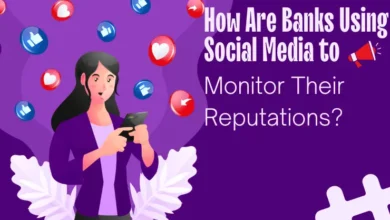Boosting Sales: Hyperlocal Social Media Marketing Strategies

As technology advances, businesses seek smarter methods to boost sales and target audiences effectively Hyperlocal social media marketing has emerged as a powerful strategy in this pursuit.
With this strategy, businesses can connect with specific locations, offering localized information and promotional material, leading to increased engagement and, ultimately, sales.
The blog focuses on strategies for boosting sales and enhancing brand visibility.
What is Hyperlocal Social Media Marketing?

Local Marketing is a hyperlocal social media approach, i.e., reaching customers in a specific area, like a neighborhood or a city.
Hyperlocal marketing is quite different from the conventional social media marketing approach which focuses on a larger audience and hyperlocal marketing is designed such as to capture customer’s interest and needs in a particular locality.
Benefits of Hyperlocal Social Media Marketing
Increased Relevance: By aiming at particular geographic zones, businesses can craft content that is deeply connected with local audiences, resulting in heightened engagement and conversion rates.
Enhanced Targeting: Hyperlocal marketing helps businesses reach nearby customers, increasing foot traffic and driving sales.
Cost-Effectiveness: Focusing marketing efforts on specific geographic regions maximizes advertising budget and boosts return on investment (ROI) for businesses.
Community Engagement: Local marketing builds trust and loyalty by connecting businesses with their community through events and conversations, fostering a neighborhood feel.
Real-Time Insights: Hyperlocal marketing targets specific areas, enabling businesses to swiftly learn about local trends and preferences to stay ahead of competitors.
Effective Hyperlocal Marketing Strategies
Geotargeting: Utilize geo-targeting features of social media advertising platforms to fire ads at users residing in a particular region with offerings tailored to their needs.
Localized Content Creation: Create local-focused content by highlighting events, landmarks, and neighborhood stories to resonate with audiences.
Engage with Local Influencers: Collaborate with the influencers or community leaders from the local community to scale up and broadcast your brand messages through a wider network.
Encourage User-Generated Content: Motivate the customers to post about your business on social media, using customized hashtags or geotags according to your location.
Monitor Local Conversations: Watch the local social media conversations and identify the pattern of the groups for engagement or content creation.
Offer Localized Promotions: Incentivize customers from certain geographic areas by introducing special promotions or discounts to encourage them to visit and become loyal.
Leverage Location-Based Analytics: Leverage location-based analytics tools to measure marketing intelligence and draw inferences from data.
Optimize Local SEO: Make sure that your website & social media profiles have been local SEO optimized by including the location-specific keywords and phrases and the location information.
By using these strategies, businesses can increase sales, make more people aware of their brand, and build strong relationships with local communities.
In conclusion, local strategies are powerful for boosting sales and connecting with audiences. Businesses can drive engagement, build brand loyalty, and increase sales—regardless of their size—by deploying effective tactics.
FAQ
Q: Who Should Use Hyperlocal Social Media Marketing?
A: It benefits businesses of all sizes, especially those targeting specific areas and local audiences, helping increase foot traffic, community engagement, and local sales.
Q: How does hyperlocal social media marketing differ from traditional methods?
A: Traditional social media marketing reaches a wide audience, while hyperlocal marketing connects with nearby customers for precise engagement.
Q: Are there legal considerations for hyperlocal social media marketing?
A: Yes, businesses must comply with local regulations and privacy laws when collecting and using customer data, obtaining consent before targeting individuals with location-based ads.
Q: What challenges come with hyperlocal social media marketing?
A: Challenges: Accurate targeting, messaging consistency, managing multiple profiles, and engaging diverse communities.




